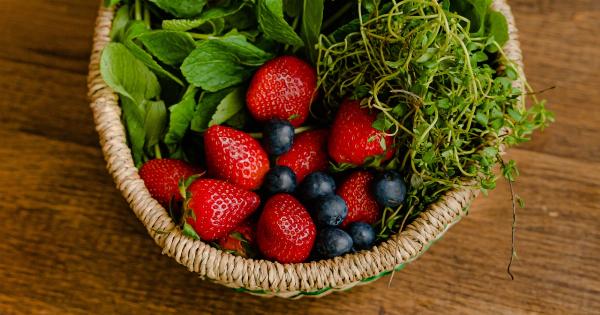In today’s fast-paced world, maintaining a healthy lifestyle has become increasingly important. One crucial aspect of a healthy lifestyle is consuming nutritious foods, such as fruits and vegetables.
However, the presence of pesticides on these produce items has raised concerns about their potential health risks. In this article, we will explore various healthy habits that can help you say goodbye to pesticide-laden fruits and veggies, ensuring a safer and more nutritious diet for you and your family.
The Pesticide Problem
Pesticides are chemicals used in agriculture to control pests and diseases that can harm crops. While these chemicals are intended to protect crops, they can also pose risks to human health.
Pesticide residues can remain on fruits and vegetables even after they are washed, and prolonged exposure to these residues has been linked to various health issues, including cancer, developmental problems, and hormone disruption.
Choose Organic
One of the most effective ways to reduce pesticide exposure is to choose organic fruits and vegetables. Organic farming avoids the use of synthetic pesticides and relies on natural pest control methods instead.
When you opt for organic produce, you can be confident that you are consuming items free from harmful pesticides. Look for the “Certified Organic” label to ensure that the product meets organic standards.
Grow Your Own
Another way to ensure pesticide-free fruits and vegetables is to grow your own. By starting a small garden, whether it be in your backyard or on your balcony, you can have complete control over the cultivation process.
Choose organic seeds or seedlings and follow organic gardening practices. This way, you can enjoy the benefits of fresh, pesticide-free produce while also connecting with nature.
Wash Thoroughly
While washing fruits and vegetables may not eliminate all pesticide residues, it can still help reduce their presence to some extent. Rinse produce under running water and gently rub their surfaces with your hands or a soft brush.
This method can help remove surface-level contaminants, although it may not be effective against systemic pesticides that have been absorbed into the plant.
Soak and Scrub
In addition to rinsing, you can further reduce pesticide residues by soaking certain produce items. Fill a large bowl or the sink with water and add a small amount of vinegar or a fruit and vegetable wash.
Allow the produce to soak for a few minutes, then scrub them gently with a clean brush. This process can help remove even more pesticides, dirt, and bacteria.
Peel Away
Some fruits and vegetables have outer layers that are more likely to have higher pesticide residues. Peeling these produce items can help reduce pesticide exposure.
However, it’s important to note that peeling can also remove valuable nutrients and fiber. Consider the specific fruit or vegetable and decide if peeling is necessary or beneficial in your case.
Buy Local
Supporting local farmers is not only beneficial for the community but also increases the likelihood of obtaining pesticide-free produce.
Small-scale farmers who practice sustainable agriculture are often more conscious of the adverse effects of pesticides and are more likely to minimize their use. Visit farmers’ markets or join a community-supported agriculture (CSA) program to access locally grown fruits and vegetables.
Seasonal Eating
Eating seasonally can also aid in reducing pesticide exposure. When you consume fruits and vegetables during their peak season, they are more likely to be grown locally, harvested at the right time, and have a lower risk of pesticide use.
Check your local farmers’ market or research which produce items are in season to make informed choices for your meals.
Alternative Pest Control Methods
If you are a gardener or have a farm, employing alternative pest control methods can help minimize the need for pesticides. For example, introducing beneficial insects like ladybugs, lacewings, or praying mantises can control pests naturally.
Using physical barriers such as row covers or netting can also protect crops from insects without resorting to chemical pesticides.
Advocate for Change
While individual actions can make a significant impact, advocating for change at a broader level can bring about long-lasting effects. Support organizations that promote organic farming and sustainable agricultural practices.
Write to your local representatives, urging them to enforce stricter regulations on pesticide use. By joining forces with like-minded individuals, you can contribute to a healthier and pesticide-free future for everyone.
Conclusion
Reducing pesticide exposure and consuming pesticide-free fruits and vegetables are essential components of a healthy lifestyle.
By choosing organic produce, growing your own, and implementing proper washing and preparation techniques, you can minimize your pesticide intake. Supporting local farmers and eating seasonally further contribute to a healthier diet. Implement these healthy habits in your life and say goodbye to pesticide-laden fruits and vegetables for good.






























